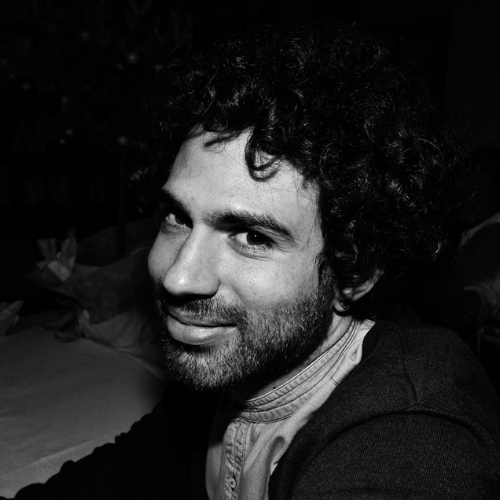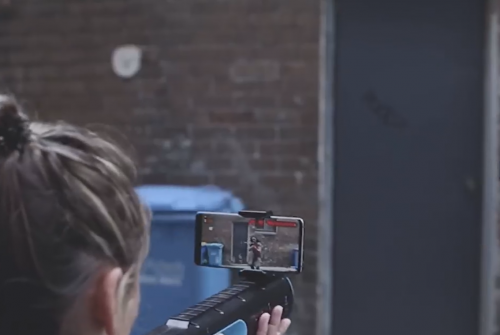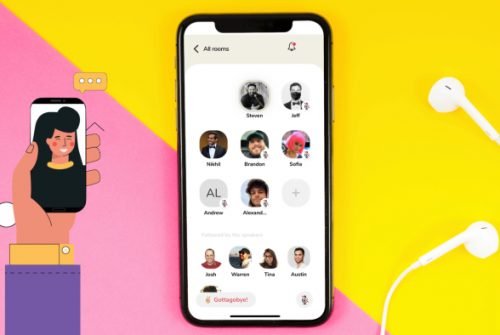Work changes and with it the activity of the recruiter: how are tomorrow’s workers selected?
13 December 2019 | Written by Thomas Ducato
We talked about it with Aldo Razzino, headhunter, founder of Open Search Network and creator of the Open Data Playground platform

Managing the flow of the large amount of data we collect, analyze it and extract relevant information for our business. These are the characteristics of the data scientist, the figure that according to a study conducted by Niccolò Cusano University is at the top of the ranking of the “7 most wanted jobs of 2020”. The data scientist, like the data engineer and the data architect, are professions that are increasingly required by the market, but at the same time very specialized, difficult to identify, but above all to evaluate.
Recruiting competitions. How to identify the best possible candidate, measuring real knowledge and skills? A system that is spreading more and more on the international scene is that of recruiting competitions, which allow the candidate to be tested by asking him to solve a problem. In this way, the recruiter has the possibility to select only really motivated people and to avoid the risk that the choice may be conditioned by prejudices related to the educational background or personal characteristics.
Open Data Playground is one of the platforms that deal with recruiting competitions. Established in September 2019, specializing in tenders for Italian STEM profiles, in Italy and abroad, it currently has 9 live competitions, with 5 different customers and has been used to carry out the Machine Learning Hackathon that has just taken place at C1A0 Expo in Genoa.
We talked about the platform and the evolution of the world of recruiting with Aldo Razzino, founder of Open Search Network and creator of the platform.
You started recruiting in 2007 when there was still little talk on data-related professions. How did you start working in the sector?
I started working as a recruiter in Italy in 2007. After 3 years for personal reasons, I moved to London, where I continued to carry out this type of activity, with another company. Initially, I was a recruiter mainly on profiles with expertise in ERP/SAP, while during my experience in the UK I started to broaden my research focus, while maintaining a specificity on Technology profiles and to the Italian market. Over time I began to mature the desire to change field and look for new stimuli. Thanks to a series of contacts that I continued to cultivate from my first experience in Italy and thanks to the investment and support of a client, I launched my own company.
And so was born the Open Search Network…
It was 2013 and I have to say that I found an environment, that of London, very favorable to entrepreneurship. Recruiting is a sector in which it is difficult to reinvent or create something completely new: so I aimed to use a different strategy, to use a winning model abroad, specialization in a general market… I kept a focus on Italian market, where I had maintained and developed my network and created a company specialized in the world of data: although we were a small company, and we still are today, the specificity has given us the opportunity to carve out our market share by offering guarantees and speed that only those who are very specialized can offer.
What does it mean?
We know well who is looking for certain figures and what are the knowledge and skills he is looking for. It is “a niche in the niche”, of course, but this allows us to be a reference in this rapidly evolving sector. The added value of this approach guarantees greater penetration into the customer, having loyal customers with whom to complete multiple research projects: the customer begins to see you more as a partner than as a mere supplier. Moreover, our specialization has allowed us to reach customers that, starting alone, I would not have even imagined.
Work with the Italian market while having offices in London. Why this choice?
When I left in 2013, I had already lived in London for 3 years and we were still in Europe. I started contacting my old customers, offering them a service dedicated to Advanced Analytics and for the time, really innovative for our market. At the time we didn’t even talk about Brexit and being in the UK did not create any problems to work in Italy. Traveling has always been an advantage: it has allowed me to compare myself with the different contexts and the most sought after figures, remaining close to my market while living across the Channel.
When was there a breakthrough in your growth?
A turning point was when we decided to completely abandon the “old markets” and started saying no to the mandates that were offered to us and that where out of our areas of expertise. During this time, when we became Full Data-Oriented, we also had the good fortune that our name came to Diego Piacentini, who was finishing up his Big Data team in Italy. We supported the Digital team and it was an illuminating experience.
How did the contact with recruitment contests come about?
At the beginning, we collaborated with a platform that already existed and that allowed us to host the contests for our customers and we tested the model. Qualifying an expert in the data field is complex and it is difficult to verify the real skills. As a head-hunter, it is really risky to identify the best profile on your own. And when you’re in a niche, making mistakes is very risky: it is very easy to compromise the work done, especially when customers start asking for senior profiles with specific skills. At the start of the Open Search Network, I focused a lot on my network and the skills close to me, then I realized that we needed something different.
And the one with the races was love at first sight…
Organizing a Data Challenge is a great way to engage the candidate. The customer could get less resumes, but whoever proposes is really interested because they invest their free time, often during the weekend, to solve the problem you have assigned to them. One of the drawbacks of recruiting processes is the counter offer that is accepted in the final stage of the process. With contests, this risk is significantly reduced.
However, at some point, you matured the desire to develop your own platform. Why?
We are all data-driven companies, our data are the contacts and we realized that by relying on external platforms we were giving value to the outside. For this reason, we have decided to create our own competition platform, specialized on recruitment and in particular, that leverages the STEM Community that we have developed with Open Search Network over the last 6 years. In the last year, therefore, Open Data Playground was born which went live in September. On Open Data Playground you can organize data challenges for Graduate, Senior & Experts and industry events. We have already 9 contests active, after two months from the launch, with 5 different customers, and we had the honor of hosting a 24-hour hackathon, in Genoa, on November 14th, with 8 teams and 38 participants facing eachothers.
How did it go?
The hackathon was the launch event for C1A0, the first international expo in Genoa on artificial intelligence, which took place last November 15th and 16th. The competition, structured with IREN, the sponsor of the event, went well. Open Data Playground was used for the first time for a 24-hour event, with more teams competing at the same time. Many liked the functionality of the ranking in real time and the characteristics of the platform, usefull also for competitions of this kind, as well as for recruitment processes.
Do you already have other events scheduled on the platform?
At the moment we are in the process of completing two competitions, for a Senior Data Scientist and a Data Architect and we have four other competitions in progress. In January we will organize a hackathon for the Bocconi Student Data Science Association and we are working on a project for spring but I can’t tell you much about it yet… I can tell you, however, that it will be focused on Sustainability and the Future!
What are the advantages for the candidate?
Making the competition is a way for the candidate to demonstrate his analytical skills, on real problems, even before going to the client; for the customer, it is a way to make brand awareness, candidate attraction, engagement & evaluation in an innovative and “gamified” way. Not all corporations are like Google, Facebook or Amazon, ready to evaluate data experts and using the old evaluation models there is a risk of the best candidates being excluded from the selection for their path, sometimes a bit atypical or particular and not for their analytical skills
What do you mean?
Sometimes we receive requests from customers who decide that they need a data scientist because they move on the basis of what their competitors do. There are paths that were not considered before, that sometimes deviate from the traditional ones, such as physics, astrophysics, neuroscience, computational linguistics that are very suitable for certain data-related jobs, but Italian companies often do not consider them. Making a Data Challenge allows everyone to demonstrate their skills in data analysis, management, and manipulation. Passing from a platform like Open Data Playground largely solves this problem.
And the problem of the Gender Gap can also be curbed in some way?
The Gender Gap problem exists, both in Italy and abroad. Perhaps in some countries, in Europe and in the world, they are a little more open to getting out of some conventions. There is more the value of lateral thinking: those with a different profile than the classic one can bring something more to the company context, innovation and inventiveness. The competitions, indeed, if classically structured, can increase the Gender Gap. And therefore undermining the principle that taking part in competition increases the possibility of being evaluated for skills and potential. To stem this problem we are collaborating with university researchers to test the best way to structure competitions.
How has technology changed and is the sector changing?
I started working in the sector when LinkedIn was still a young and little-used tool, especially in Italy. Today is the main platform, as Monster was years ago, and is an example of how we use artificial intelligence without even knowing it. The LinkedIn recommendation system that suggests profiles to us, is a system that has been working in the backend for years, which over time gets better and better. This was the first revolution. It has become, then, all very proactive and hyperconnected: the “hunt” is done with new methods that have been supported, but not replaced, by traditional methods. Technology is facilitating and speeding up work. I would like to stress, however, that although technology has an increasingly important role, I believe that the human relationship remains irreplaceable. The network on which you base your work must be real and constantly developed.
We close with the concept of Open, at the base (and in the name) of your projects. What does this word mean to you?
The concept of Open is the basis of our work. I do this job because I am an open person, who likes to talk and talk to others, to connect people. I believe that today it makes no sense to be closed, the world itself has opened up. We try to bring this concept of openness into our research activity, offering our network and our playground to our contacts.





